How it feels to live in a liminal space between tourist and resident
Working remotely in Thailand, enjoying ultra-local slow tourism and finding things to do while my girlfriend is at work
When do we stop being tourists, and start to become residents or even expats? As more people try their hand at remote working, answering this question can be exciting and unsettling in equal measures.
I recently extended my tourist visa in Thailand where I will have spent a total of three months this winter, mostly in the Northern capital of Chiang Mai.
I’ve started to get to know the city, and even found a girlfriend here - an American expat, Beth, who teaches at an international school. I’ve got my routines, my favourite places, and I’ve reached the point where tourists who stop randomly in the middle of the pavement to stare at their phones have become a bit annoying. Can’t they walk and look at Google Maps at the same time, like everyone else?
And yet I enjoy being a tourist. I love the feeling of arriving somewhere for the first time, dazzled and confused by the unfamiliar, wandering aimlessly, open to every unexpected new experience. I don’t want to lose that.
In truth, I’m living in a liminal space between tourist and resident. Having done my time in hotels and guest houses, I’m now staying at Beth’s house in a suburb five miles south of the moated Old City of Chiang Mai.
Some days while she’s at work I’ll take a taxi into town, where I flip open my Macbook Air at the same air-conditioned cafe, nursing a hot cappuccino. Being surrounded by other laptop users, all diligently tapping away, makes it easier for me to focus on work. No words are exchanged. Even eye contact is rare, but we are all clearly checking each other out.
Some of the younger workers eat at their desks, but I always go out for lunch, strolling the sun-baked sois, wandering around markets, returning to one of half a dozen favourite restaurants where there’s no English menu and the staff smile indulgently at my few faltering words of Thai.
I’ve seen all the main sites, but this country, this city, never ceases to throw up surprises - a new piece of street art, a cafe that’s suddenly become inundated with Chinese Instagrammers, a temple with a statue of Donald Duck eating a bowl of noodles (yes, really).
Other days, I’ll stay closer to home and cycle around the neighbourhood on narrow roads that zig-zag around rice fields, new housing developments and village shops. Outside their homes, people sell bananas or watermelons, or grill pork on charcoal.
There’s a swimming pool where I do laps in solitude under the blazing sun and a no-name restaurant where the owner greets me with a grin and asks if I want the usual: Thai omelette with chopped pork, fried kale and rice. His wife has a tiny ginger kitten she keeps on a leash. It’s called Ba Mee Geow, after the house specialty of noodle soup with pork and wantons.
I love this form of ultra-local slow tourism. Freed from time constraints and must-see lists, I wander on foot and a rusty mountain bike, slow enough to notice the details that would normally pass me by. Two minutes walk from the house, there’s a coffee shop, where the owner, Oh, knows my name and order. It’s a popular place with young Thai musicians and I’ve met a couple of the regulars, including a man from Amsterdam who worked for 20 years as a cannabis dealer.
On the same road there’s a house where the owners sell fresh farm eggs, sticky rice and noodles from their front yard. A minute in the other direction is a newly-opened corner shop serving rotisserie chicken and spicy papaya salad. The bottles of Chang beer are a few baht more expensive than at 7-11, but the welcome is friendlier.
Some evenings we’ll wander down the road with tiffin boxes and collect a meal from one of the street stalls beside the river. There’s a lady who cooks nothing but pad Thai - with prices from less than £1. At another stall I ate yen ta fo, a dish of seafood and pork on flat noodles coloured pink with red bean curd. There are a dozen or more dishes I need to try.
This way of life isn’t for everyone. I spend a lot of time alone. I met more people when I was staying at guest houses and I miss that. Weekends are more fun when Beth is off work and we go to jazz clubs, hike in the mountains or join her expat pals at pool parties. But I miss my friends at home and my family, especially my son, who lives in London, and my daughter, in her first year at university.
Certainly, I don’t miss the British winter - the biting cold and the short days. But it’s not all wonderful here: although the sun shines from dawn to dusk, we are now into the “smoky season” in Northern Thailand when farmers burning crops help to create a persistent and unpleasant grey haze: the mountain disappears from view and, on particularly bad days, I can feel it in my eyes and throat. I’ve started wearing a mask again, this time to filter out harmful PM2.5 particles.
Still, I’ll be home soon with new things to complain about. After a short side trip to Vietnam, I fly home on the last day of winter. A week later the clocks go forward and the sun won’t set in London until 7.30pm. A good time to be home.
If you follow me on social media, you’ll know I’m currently in Vietnam. I wrote this last week, but only just got around to publishing it.

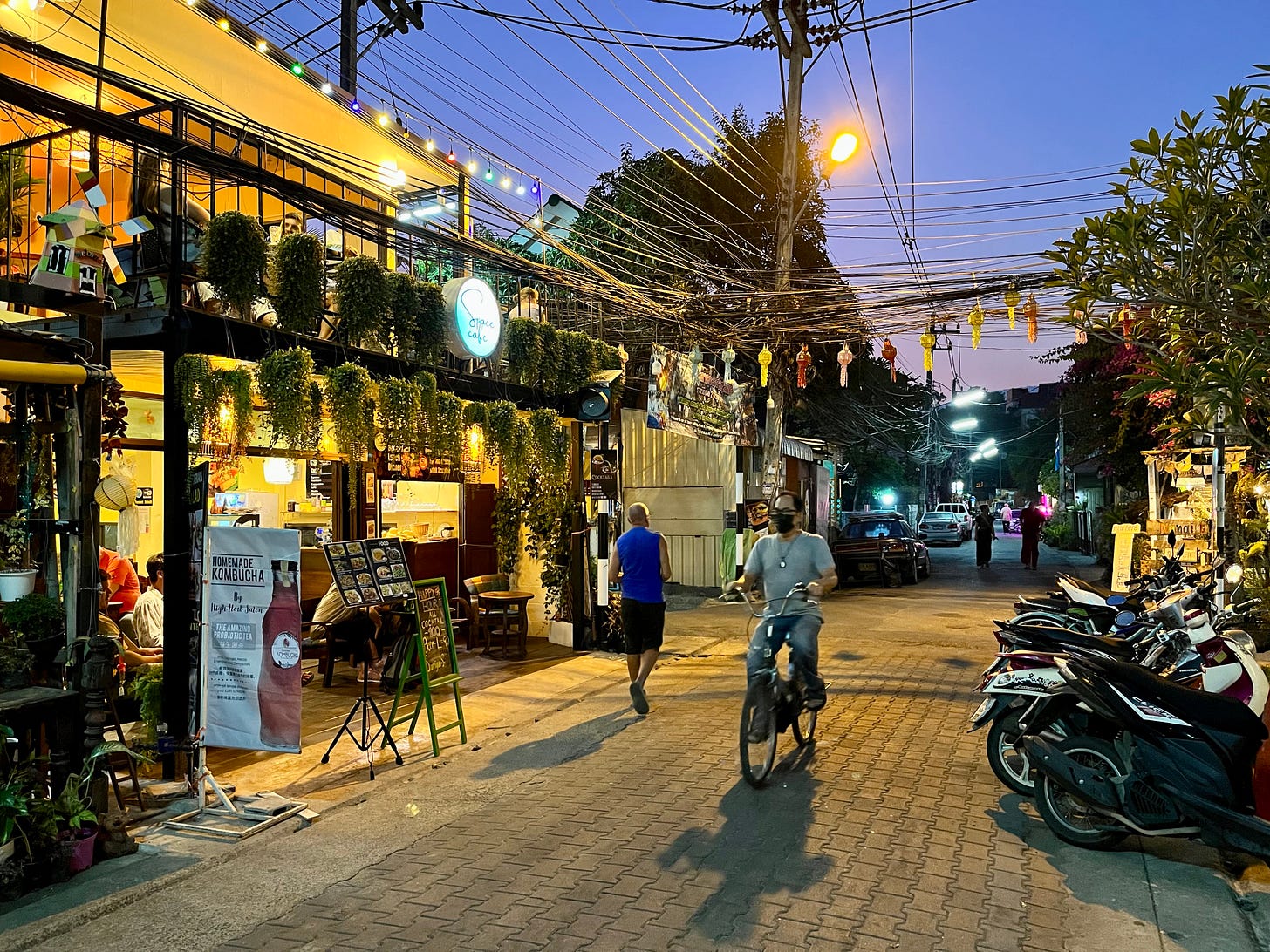
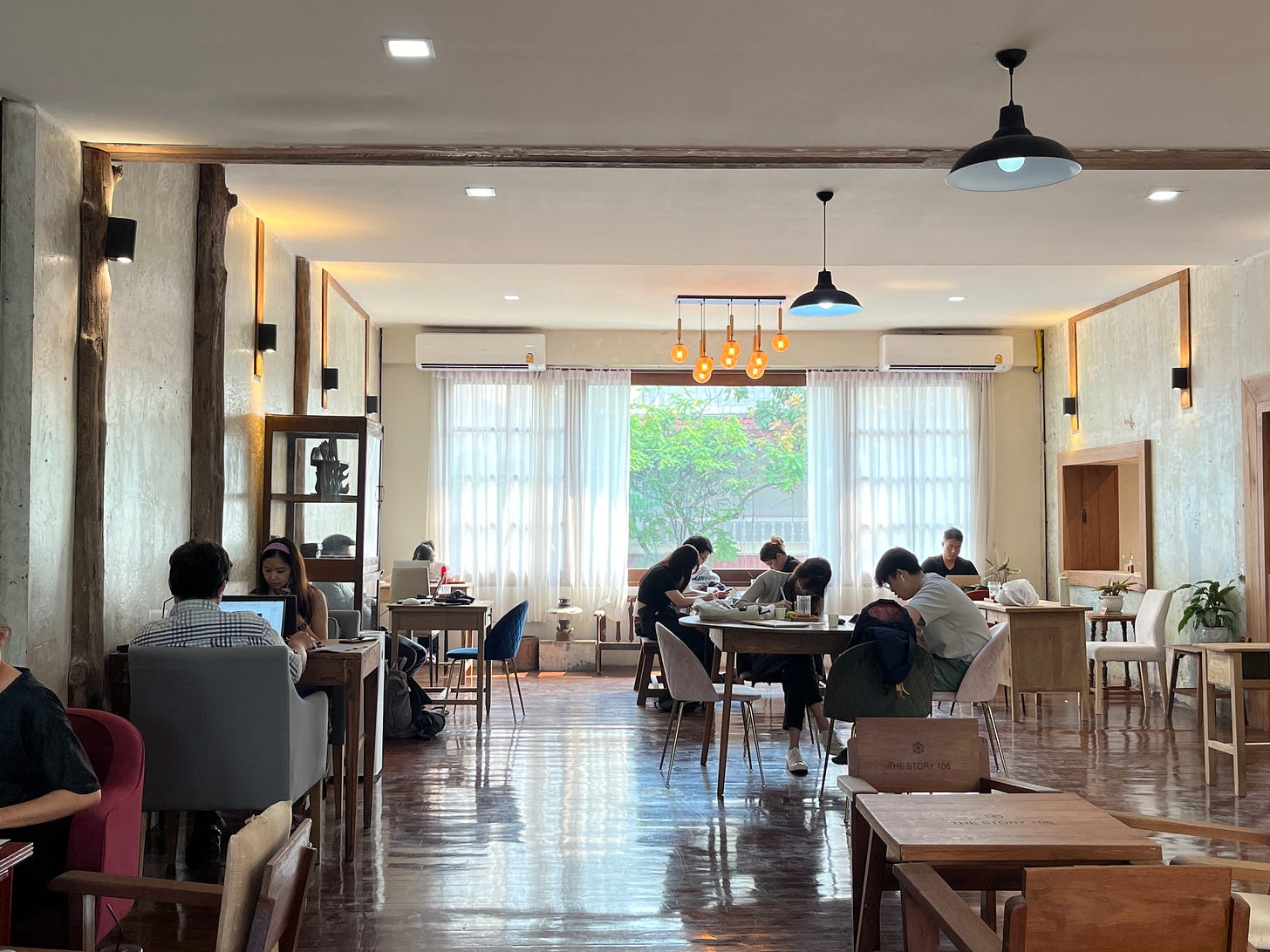
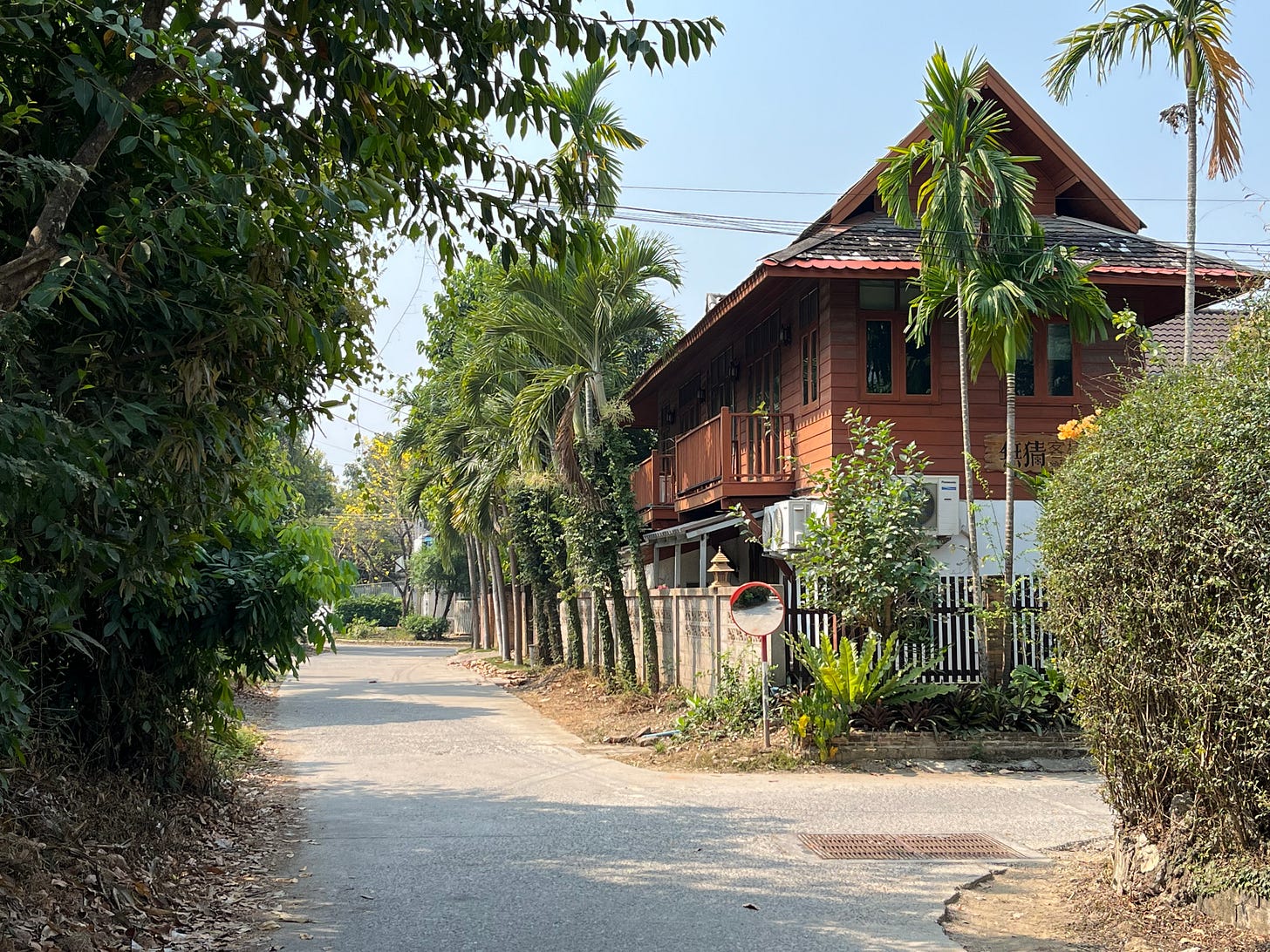
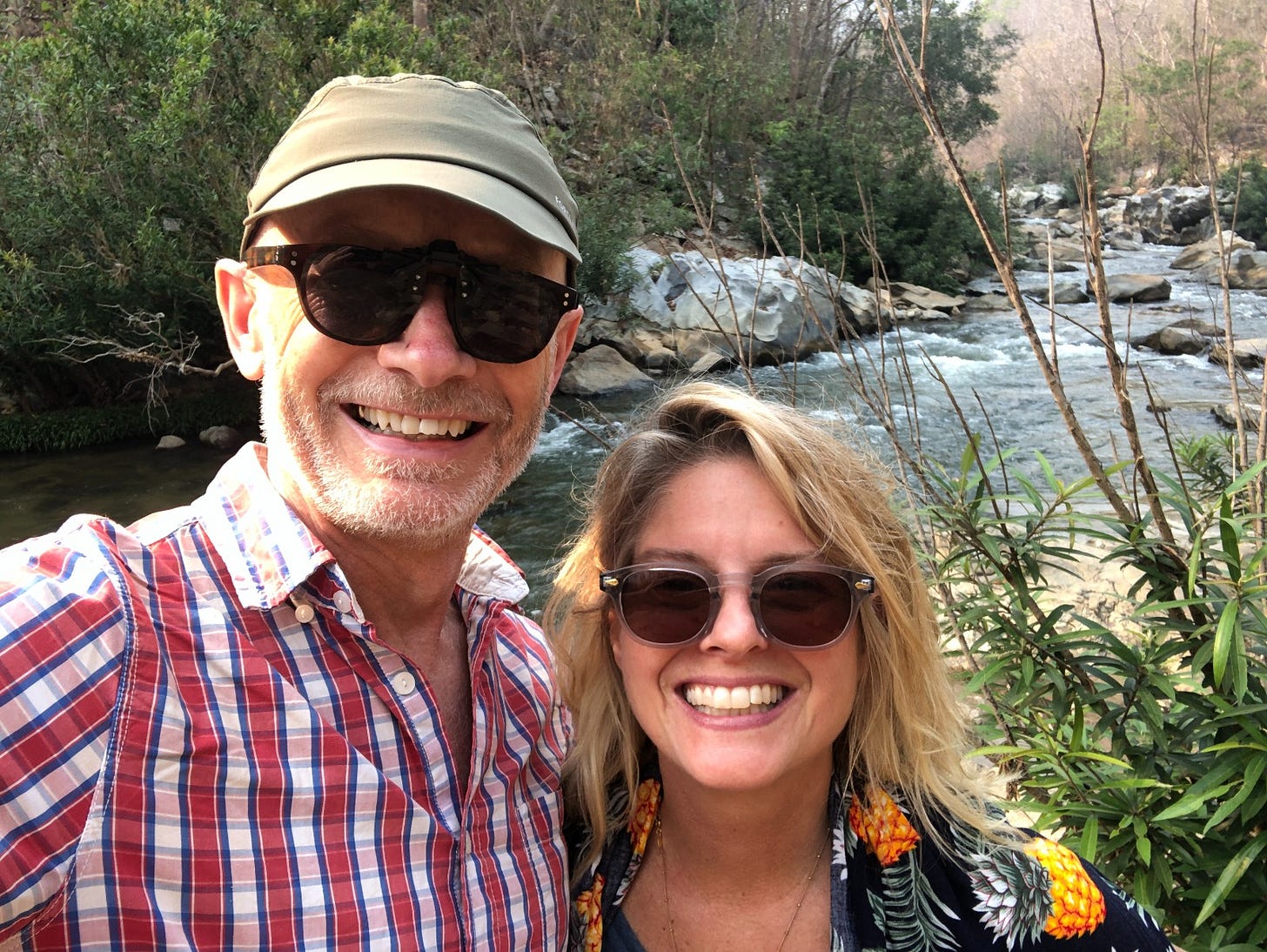
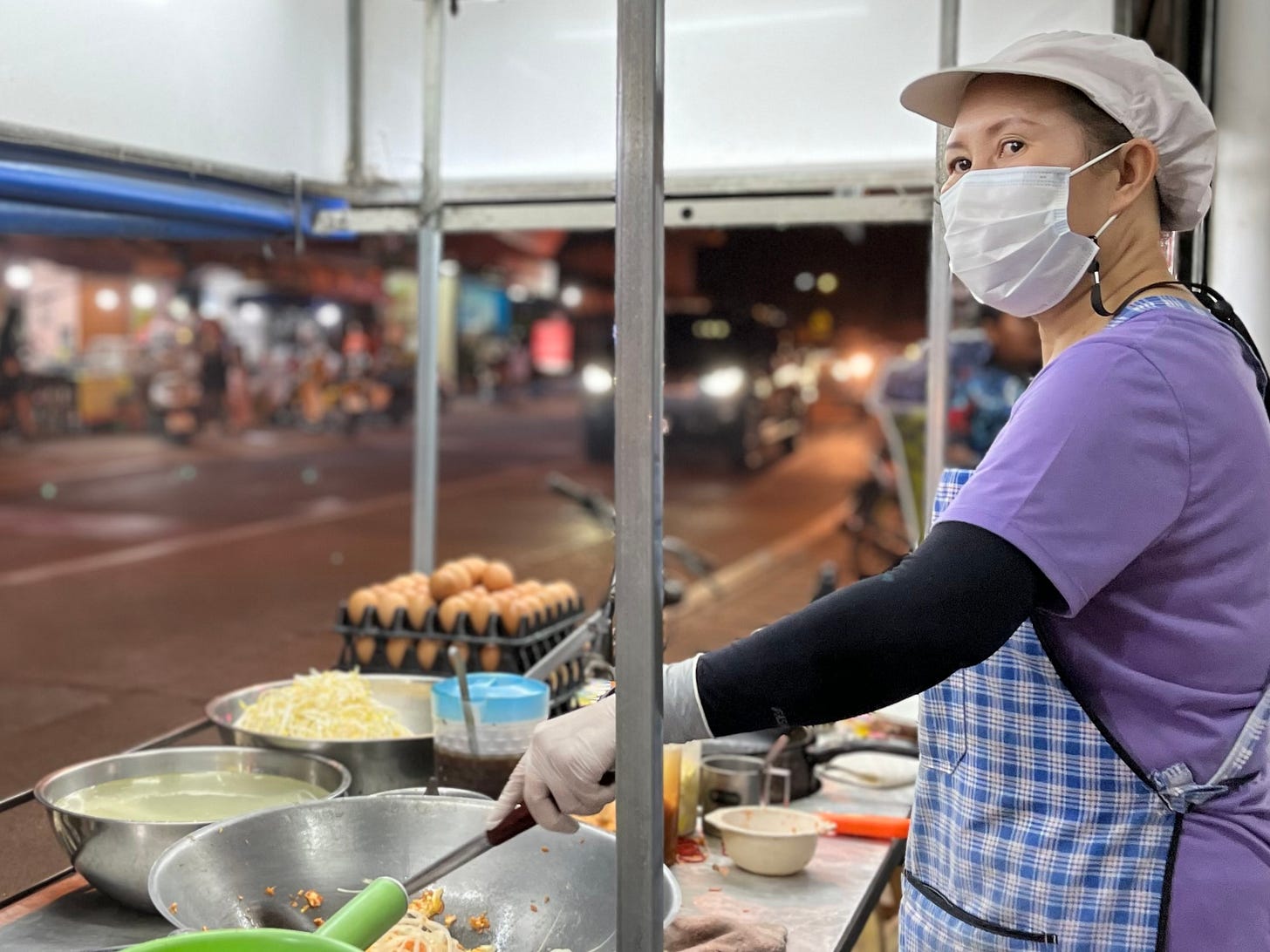
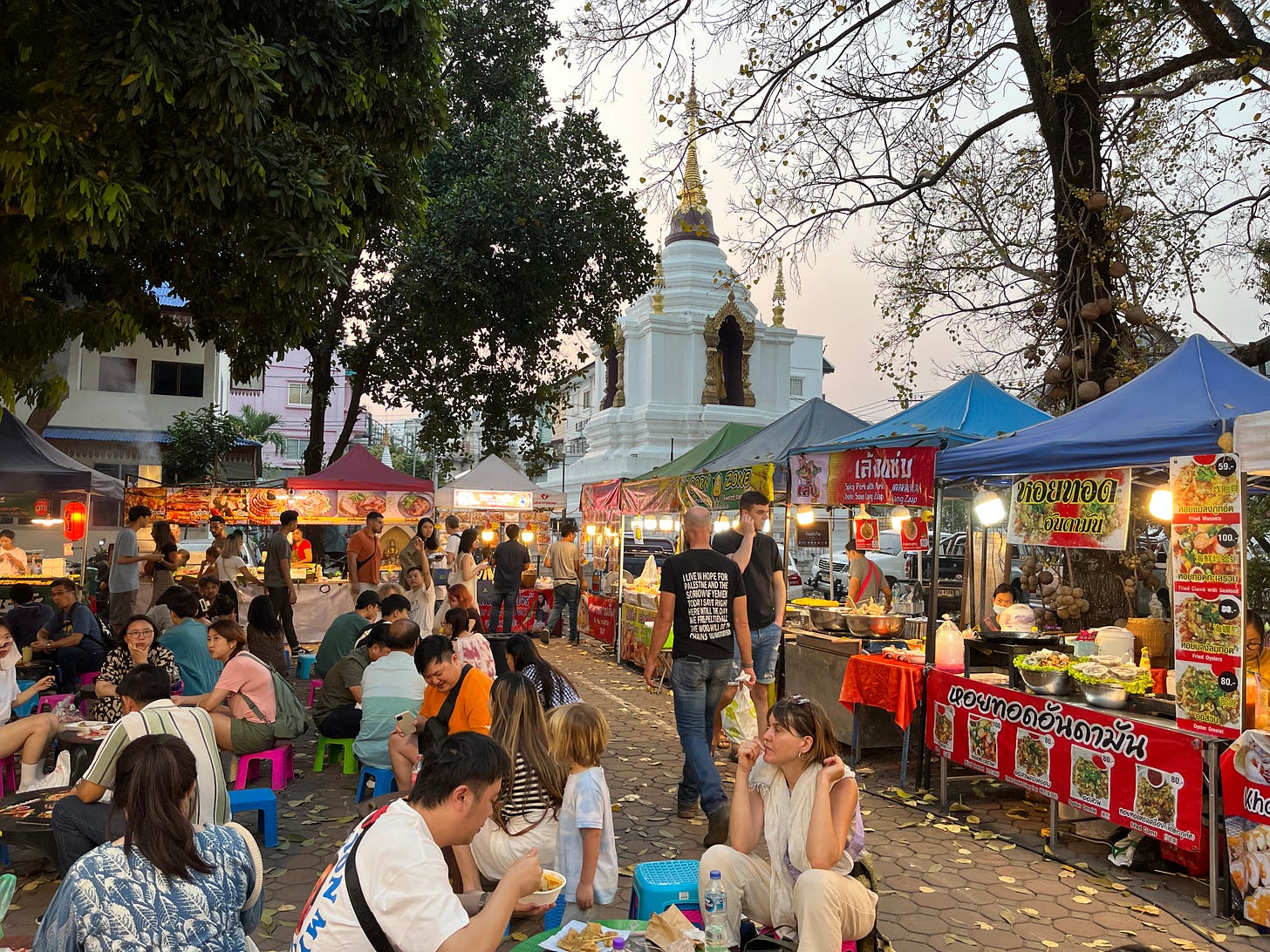
Thanks Mark, that was a lovely read. It is the sort of thing we plan to do somewhere: Thailand, Malaysia, or Vietnam for a few months. We'd also do it to avoid a winter, and although our southern Australian winters are not as torrid as London's, they can still get you down.